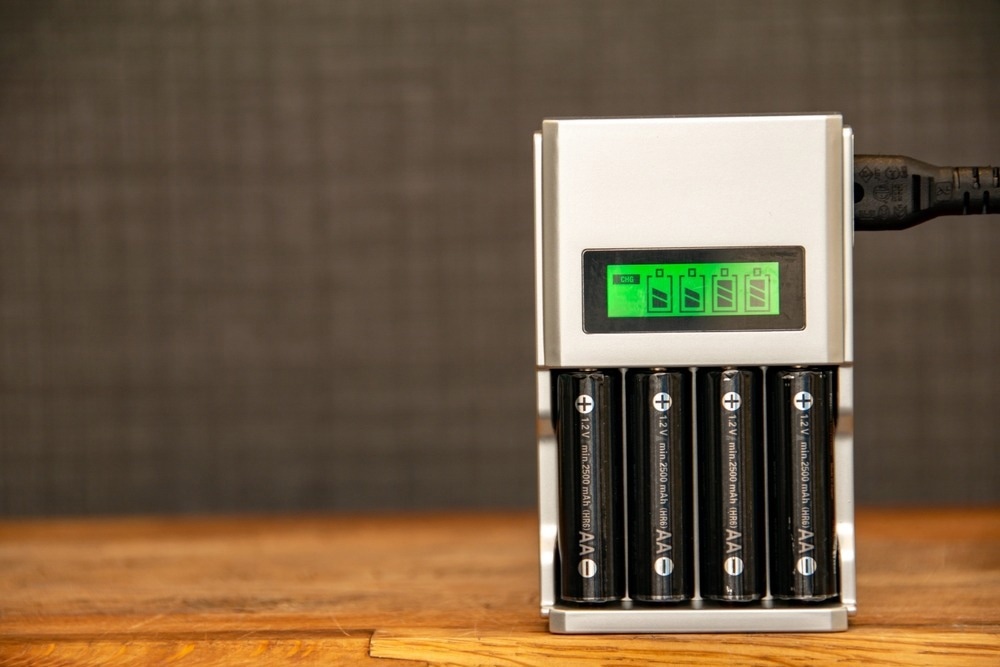Reviewed by Danielle Ellis, B.Sc.Sep 4 2024
The US Department of Energy (DOE) announced $125 million in financing for two Energy Innovation Hub teams to provide the scientific groundwork for seeding and accelerating next-generation innovations beyond today’s generation of lithium-ion batteries.

Image Credit: TTL Deez/Shutterstock.com
These multi-institutional research teams, directed by Argonne National Laboratory and Stanford University, will generate scientific concepts and knowledge that will influence transportation decarbonization and renewable energy integration into the power grid.
Rechargeable batteries, such as Li-ion and lead-acid batteries, have had a significant influence on the economy. Emerging applications will necessitate more energy storage capacity, safer functioning, cheaper prices, and a wider range of materials for battery production.
To address these problems, a greater knowledge of fundamental battery and materials sciences is required to allow scalable battery designs with adaptable and reversible energy storage capacities that exceed what is currently attainable. Additional benefits may include the reduction of supply chain concerns connected with the present generation of batteries.
Providing the scientific foundation to accelerate this important research is key to our economy and making sure the US plays a lead role in transforming the way we store and use electricity. Today's awards provide our Energy Innovation Hub teams with the tools and resources to solve some of the most challenging science problems that are limiting our ability to decarbonize transportation and incorporate clean energy into the electricity grid.
Harriet Kung, Acting Director, Office of Science, Department of Energy
The two Energy Innovation Hub teams are the Energy Storage Research Alliance (ESRA), managed by Argonne National Laboratory, and the Aqueous Battery Consortium (ABC), led by Stanford University. ESRA will provide the scientific foundation for the development of new compact batteries for heavy-duty transportation as well as grid energy storage solutions, with an emphasis on accomplishing unprecedented molecular-level control of chemical reactivity, ion selectivity, and directional transport in complex electrochemical cells.
ABC will concentrate on laying the scientific groundwork for the large-scale development and deployment of aqueous batteries for long-duration grid storage applications. Both teams will prioritize the study and application of Earth-abundant materials to reduce supply chain risks.
Both Energy Innovation Hubs teams include various institutions, including historically black colleges and universities (HBCUs) and other minority-serving institutions (MSIs). The projects offer an exceptional chance for inclusive research engaging a diverse range of individuals from various institutions and workforce development in energy storage research.
Under the DOE Funding Opportunity Announcement for the Energy Innovation Hub Program: Research to Enable Next-Generation Batteries and Energy Storage, the teams were chosen through a competitive peer review process. Despite its fundamental science emphasis, the Announcement was created in collaboration with the DOE Joint Strategy Team for Batteries.
Up to five-year grants are available with a total of $125 million in financing. The Energy Innovation Hubs page and the Basic Energy Sciences program webpage both include more information.